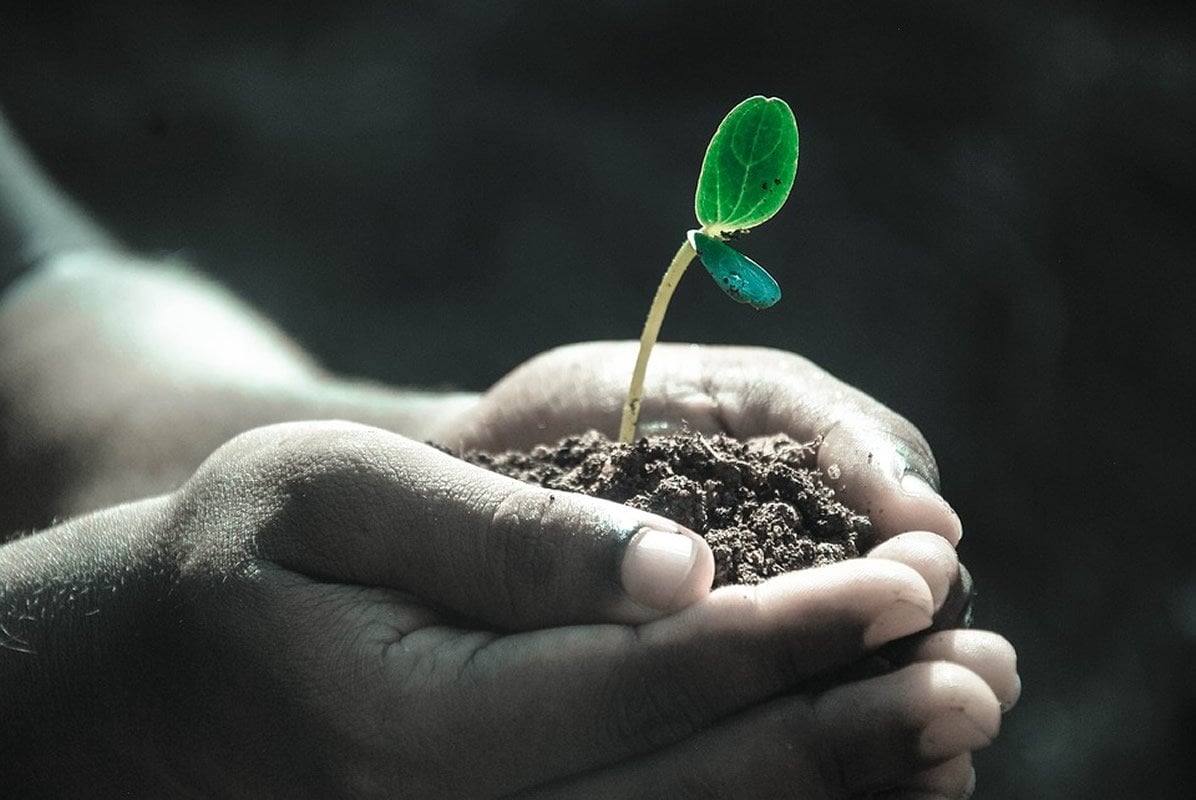Summary: Despite much debate that plants may have the same ‘mental features’ as animals, such as consciousness, cognition, and emotions, a new study reveals this is unlikely to be the case. Researchers report plants, which lack any anatomical structures remotely comparable to the complex brain, are highly unlikely to possess consciousness.
Source: Cell Press
If a tree falls, and no one’s there to hear it, does it feel pain and loneliness? No, experts argue in an opinion article publishing on July 3rd in the journal Trends in Plant Science. They draw this conclusion from the research of Todd Feinberg and Jon Mallatt, which explores the evolution of consciousness through comparative studies of simple and complex animal brains.
“Feinberg and Mallatt concluded that only vertebrates, arthropods, and cephalopods possess the threshold brain structure for consciousness. And if there are animals that don’t have consciousness, then you can be pretty confident that plants, which don’t even have neurons–let alone brains–don’t have it either,” says Lincoln Taiz, Professor Emeritus of molecular, cell, and developmental biology at University of California at Santa Cruz.
The topic of whether plants can think, learn and intentionally choose their actions has been under debate since the establishment of plant neurobiology as a field in 2006. Taiz was an original signer of a letter, also in Trends in Plant Science, arguing against the suggestion that plants have neurobiology to study at all.
“The biggest danger of anthropomorphizing plants in research is that it undermines the objectivity of the researcher,” Taiz says. “What we’ve seen is that plants and animals evolved very different life strategies. The brain is very expensive organ, and there’s absolutely no advantage to the plant to have a highly developed nervous system.”
Plant neurobiology proponents draw parallels between electrical signaling in plants and nervous systems in animals. But Taiz and his co-authors argue that the proponents draw this parallel by describing the brain as something no more complex than a sponge. The Feinberg-Mallatt model of consciousness, by contrast, describes a specific level of organizational complexity of the brain that is required for subjective experience.
Plants use electrical signals in two ways: to regulate the distribution of charged molecules across membranes and to send messages long-distance across the organism. In the former, a plant’s leaves might curl up because the movement of ions resulted in the movement of water out of the cells, which changes their shape; and in the latter, an insect bite on one leaf might initiate defense responses of distant leaves. Both actions can appear like a plant is choosing to react to a stimulus, but Taiz and his co-authors emphasize that these responses are genetically encoded and have been fine-tuned through generations of natural selection.
“I feel a special responsibility to take a public position because I’m a co-author of a plant physiology textbook,” he says. “I know a lot of people in the plant neurobiology community would like to see their field in the textbooks, but so far, there are just too many unanswered questions.”

One frequently referenced study on plant learning is the apparent habituation of Mimosa pudica. In this experiment, a plant is dropped, and its leaves curl up in defense. After being dropped many times, but sustaining no serious damage, the leaves stop curling. When the plant is shaken, the leaves do curl, ostensibly ruling out motor fatigue as a cause of the lack of response when dropped.
“The shaking was actually quite violent. Because the shaking stimulus was stronger than the dropping stimulus, it doesn’t definitively rule out sensory adaptation, which doesn’t involve learning,” Taiz argues. “Related experiments with peas purporting to show Pavlovian classical conditioning are also problematical because of the lack of sufficient controls.”
Taiz and his co-authors hope that further research will address the questions left unanswered by current plant neurobiology experiments by using more stringent conditions and controls.
Source:
Cell Press
Media Contacts:
Theresa Machemer – Cell Press
Image Source:
The image is in the public domain.
Original Research: Open access
“Plants Neither Possess nor Require Consciousness”. Lincoln Taiz, Daniel Alkon, Andreas Draguhn, Angus Murphy, Michael Blatt, Chris Hawes, Gerhard Thiel, David G. Robinson.
Trends in Plant Science. doi:10.1016/j.tplants.2019.05.008
Abstract
Plants Neither Possess nor Require Consciousness
Although ‘plant neurobiologists’ have claimed that plants possess many of the same mental features as animals, such as consciousness, cognition, intentionality, emotions, and the ability to feel pain, the evidence for these abilities in plants is highly problematical.
Proponents of plant consciousness have consistently glossed over the unique and remarkable degree of structural, organizational, and functional complexity that the animal brain had to evolve before consciousness could emerge.
Recent results of neuroscientist Todd E. Feinberg and evolutionary biologist Jon M. Mallatt on the minimum brain structures and functions required for consciousness in animals have implications for plants.
Their findings make it extremely unlikely that plants, lacking any anatomical structures remotely comparable to the complexity of the threshold brain, possess consciousness.






